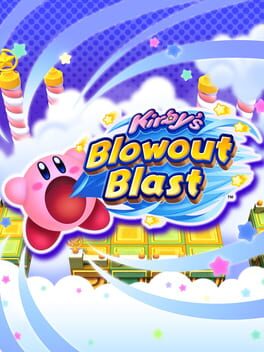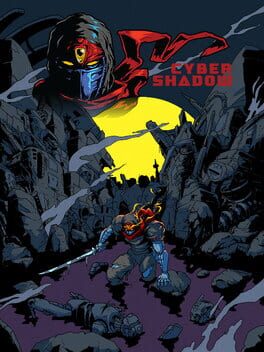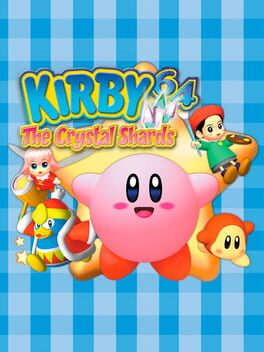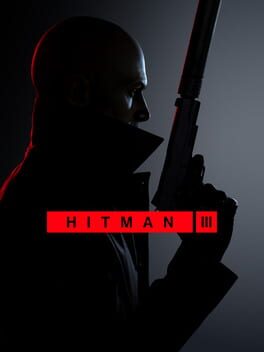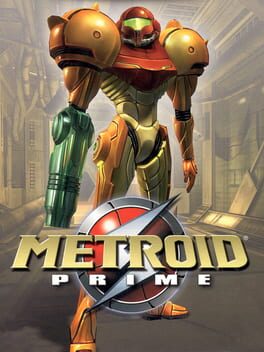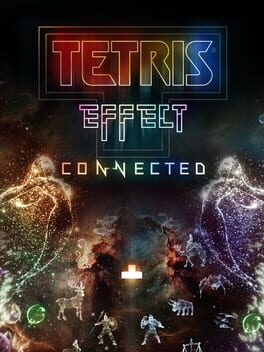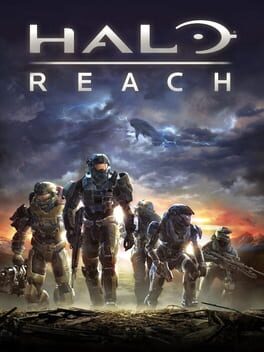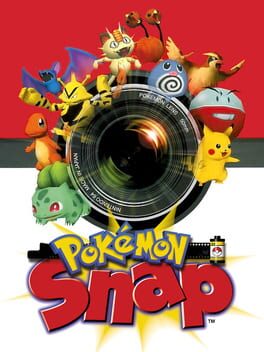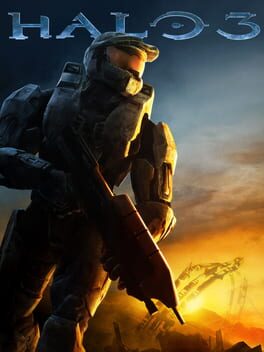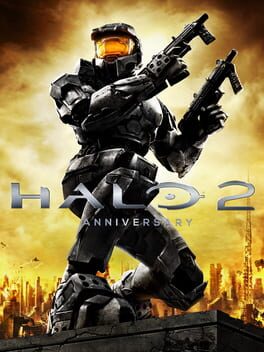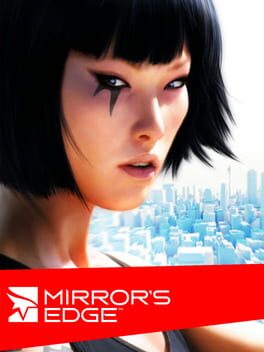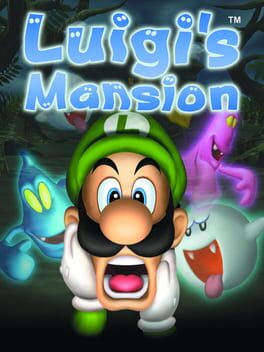AbramBuehner
Kirby's Blowout Blast is testament to the fact that Kirby can be so much more than he already is. But, the story of Blowout Blast is entirely its potential. As a $7 eShop title, this was never going to be an especially substantive experience by its own merits. It is a fun one, but the game is fairly limited. More complex level design or variety in boss encounters would add some texture. As it stands, the core, score-based gameplay here is compelling for an afternoon, but there isn't much to really grab onto.
2021
Cyber Shadow is an exemplary action platformer. The game acutely understands what makes this gameplay style tick and executes on it brilliantly. The game takes a while to truly come into its own, and the story is overwrought, but the pure gameplay experience is exceptional.
The set pieces, particularly in the back half, are dazzling. The movement and combat are exacting. The gameplay mechanics unfold in a way that empowers the player. The difficulty is tough but fair, and totally scalable. The pixel art is stunningly beautiful. The soundtrack KICKS, especially Mekacity Docks. Cyber Shadow is a smooth, precise experience that Mechanical Head games executed on elegantly.
The set pieces, particularly in the back half, are dazzling. The movement and combat are exacting. The gameplay mechanics unfold in a way that empowers the player. The difficulty is tough but fair, and totally scalable. The pixel art is stunningly beautiful. The soundtrack KICKS, especially Mekacity Docks. Cyber Shadow is a smooth, precise experience that Mechanical Head games executed on elegantly.
There are two ways to adapt your mascot platformer in 3D if you're a 90s dev. Either you do what Mario 64 did, retain the spirit of the original while restructuring the gameplay loop to fit 3D, or you do what Crash Bandicoot did, yank the camera down behind your character's shoulder and keep all your fourth gen design philosophies.
Well, actually there's a third way to go, and that's what Kirby 64 does. That third option is to just tell the Z-axis to go fuck itself, and you make a 2D platformer with a kinda dynamic camera. In short Kirby 64 is stiflingly familiar. It's also stiflingly slow - Kirby just doesn't feel right in this game. It's Kirby's typical gameplay laced with a tedious malaise.
But, the game still has a lot of merit, surprisingly. The dynamic camera, when used correctly, adds a lot of depth to the world and toothiness to the gameplay. Some of the boss fights use the game's depth very well. It's a clever core idea that could be incredibly compelling in a modern context. There are some fun level motifs also, and a solid soundtrack behind it all.
Of course, the copy ability mixing is certainly the game's highlight, and it's been praised to no end. It's incredibly clever, and it absolutely should've become a staple element of the franchise, opposed to the lip service it gets paid occasionally in titles like Squeak Squad.
On the whole, Kirby 64 is alright.
Well, actually there's a third way to go, and that's what Kirby 64 does. That third option is to just tell the Z-axis to go fuck itself, and you make a 2D platformer with a kinda dynamic camera. In short Kirby 64 is stiflingly familiar. It's also stiflingly slow - Kirby just doesn't feel right in this game. It's Kirby's typical gameplay laced with a tedious malaise.
But, the game still has a lot of merit, surprisingly. The dynamic camera, when used correctly, adds a lot of depth to the world and toothiness to the gameplay. Some of the boss fights use the game's depth very well. It's a clever core idea that could be incredibly compelling in a modern context. There are some fun level motifs also, and a solid soundtrack behind it all.
Of course, the copy ability mixing is certainly the game's highlight, and it's been praised to no end. It's incredibly clever, and it absolutely should've become a staple element of the franchise, opposed to the lip service it gets paid occasionally in titles like Squeak Squad.
On the whole, Kirby 64 is alright.
2021
2002
My completion of Metroid Prime is the culmination of three different attempts, all through the Prime Trilogy on Wii. Finally, I sat down for a concerted playthrough. Front to back it took just under ten hours and just over a weekend. Completing Prime having played Metroid Fusion in 2020, I had a framework that helped explain why it took me so long to get through this title.
I wish it had an overt narrative that contextualized and motivated gameplay like Fusion. While the Chozo backstory is interesting background and the game has a cerebral energy, the lack of a tangible plot led to chunks of this game feeling aimless. This feeds into the rougher edges of traversal, pacing and design that cut against the notion that Metroid Prime is some untouchable masterpiece. I would've chafed at that idea regardless, considering some of the systemic issues I have, but the lack of a clear narrative certainly became the crux of my issues with the game.
That's all negative windup for a glowingly positive swing, though. Tallon IV is maybe the best realized world I've experience in a sixth generation title. From the overarching design to the weather patterns to the minute details and environmental storytelling, this is next-level. The translation of Super's gameplay to 3D is really well-executed too. The lock-on combat picks up momentum as the game progresses, and the first-person platforming - with a Wii Remote - is the best I've experienced. Plus, this game has one of my favorite soundtracks of all time. Damn, it's really good.
With all this in mind, I'm very glad I've finally played Prime to completion. Considering the discord around it, I'm curious if I'll like 2: Echoes, but the (from what I understand) more scripted nature of 3: Corruption sounds right up my alley. I'd say that my fingers are crossed the collection comes to Switch, but the Wii Remote is just so elegant for these games. I'll dive into the next title before too long.
I wish it had an overt narrative that contextualized and motivated gameplay like Fusion. While the Chozo backstory is interesting background and the game has a cerebral energy, the lack of a tangible plot led to chunks of this game feeling aimless. This feeds into the rougher edges of traversal, pacing and design that cut against the notion that Metroid Prime is some untouchable masterpiece. I would've chafed at that idea regardless, considering some of the systemic issues I have, but the lack of a clear narrative certainly became the crux of my issues with the game.
That's all negative windup for a glowingly positive swing, though. Tallon IV is maybe the best realized world I've experience in a sixth generation title. From the overarching design to the weather patterns to the minute details and environmental storytelling, this is next-level. The translation of Super's gameplay to 3D is really well-executed too. The lock-on combat picks up momentum as the game progresses, and the first-person platforming - with a Wii Remote - is the best I've experienced. Plus, this game has one of my favorite soundtracks of all time. Damn, it's really good.
With all this in mind, I'm very glad I've finally played Prime to completion. Considering the discord around it, I'm curious if I'll like 2: Echoes, but the (from what I understand) more scripted nature of 3: Corruption sounds right up my alley. I'd say that my fingers are crossed the collection comes to Switch, but the Wii Remote is just so elegant for these games. I'll dive into the next title before too long.
2010
Halo: Reach is almost offensively good. I truly thought that Halo 3 would be the pinnacle of the series, but now I think it's Reach. The gunplay is somehow more refined than 3 and the level design is astounding. What really pushes the game over the top is the emotional core of the narrative - it's both incredibly badass and full of a resigned sorrow that's very special. Noble Team are such great characters, even if they're a bit thinly written. Reach is cinematic while remaining playable, modern while remaining distinct, and one of my favorite games, period.
1999
Pokemon Snap is lovely. As a big fan of N64 rail shooters (Star Fox 64 and Sin & Punishment), this was a charming riff on the genre. The Pokemon are so expressive and fun to interact with. For an N64 game, these worlds feel so alive. With plenty of Pokemon fan service and great gameplay, it was a great ride from front to back. I beat it in one sitting. Can't wait to replay for higher scores, and certainly can't wait for New Pokemon Snap!
2007
With each Halo title, Bungie is in an arms race to make the quintessential FPS campaign. Halo 3's is endlessly playable. It's almost immaculate - save for a few hiccups, such as the underwhelming 343 fight. On the whole though, it's a cinematic, expertly scripted, and consistently fun adventure. The gunplay, set pieces, and level design is just spectacular. Halo 2's Brute uprising results in a more interesting plot for my tastes, but the story still allows for some genuinely great moments. Halo 3 is a spectacular game.
2014
Halo 2: Anniversary is a stunning experience that felt like Combat Evolved plus. The dual narratives and lore elements rocked. The level design felt more inspired and varied. And, of course, the gunplay is as good as one would expect from Halo. A terrific first-person shooter that could've benefited from less spongy enemies and a more sensible checkpoint system. In the grand scale of things though, Halo 2's issues don't even come close to affecting the game's overall quality.
2008
Mirror's Edge was developed by the fun police. I see why people enjoy this title, but I just found it to be more frustrating than fun. The game is at its best when the player can really flow across rooftops - but the game only lets you do that for a small portion of the runtime. It has the Sonic problem. Sonic is most fun when he goes fast, but if he's always going fast the game falls apart. Mirror's Edge recognizes this by slowing the pace WAY down with interior locations that are puzzle-focused. This isn't what I enjoyed about the experience, so I was often let down by the design. Especially since the game feels overly exact - nothing has a stickiness to it that accounts for small player error. I often found myself annoyed by jumps that I was performing 95% correctly, but the game just wouldn't give to me. Maybe I'm bad at Mirror's Edge, who knows. But Celeste illustrates that platformers should be charitable toward their player in service of flow and momentum. Mirror's Edge disagrees, and frankly I don't see myself compelled to 'git gud' here. Failure felt discouraging opposed to galvanizing, so I'll be partying ways with the game here. I did love its art direction and soundtrack though. The cutscenes, however, were strangely low-budget and distracting. At some point I would like to play Catalyst as I see great potential here, but for my tastes it's buried under a lot of design decisions I don't connect with. Also, the shooting? What's up with that? This is a DICE game, after all. When Mirror's Edge is fun, it's really fun, but it undercuts its itself often.
2001
Playing Luigi's Mansion 1 after Luigi's Mansion 3 makes Next Level's masterpiece even more impressive. LM1 is alright, but it's a far weaker game than what came after. Its atmosphere is thick, second to none, and the mansion itself is a wonderful location. The presentation on the whole is what makes the game special, down to the jiggle physics for Luigi's nose. The gameplay, though, is shaky. The adventure has an explorative facade, but it's pretty much a linear, action puzzle game. The ghost combat feels more like a fishing simulator than tense paranormal fisticuffs, but it's satisfying on a gut level, especially as you click and clack your GameCube's sticks and shoulder buttons like a maniac. It's undoubtedly shallow, though. The puzzles and boss fights range from insultingly simple to strangely arcane though; which leaves the entire experience feeling muddled. Also, the controls are largely inconsistent, which added a layer of frustration that loomed over the game. However, its front to back creativity is endearing, and does open up some genuinely fun puzzle scenarios, even if they're not as common as one would hope. Luigi's Mansion 1 is a conflicted experience that is still worth checking out considering its brevity, but it's far from the best Luigi's Mansion title.
2005
